As students and staff get acclimated to a fresh school year, they will notice a friendly new face around the halls of the King Street campus. Last week, I sat down with Ashley Carter Sinclair, the recently hired Campus Administrator, to discuss his life story and goals for ACHS.
The first thing I noticed about Carter Sinclair is how mellow, yet inviting, he is. As I sat down in his office, he offered me a box puzzle — one of many scattered across his desk.
“I’m a puzzle kind of guy,” he told me. “If you ever want to try to test your resolve [or] see if you can open a box or unlock a lock, you can come on down here.”
Juggling my phone, notebook and computer, I politely declined the offer, and we got straight into the interview.
The first question I asked, as always, was how to spell Carter Sinclair’s name. A masculine first name of Ashley might seem strange to Americans, but in England — Carter Sinclair’s place of birth — it’s fairly common.
“I haven’t met many American-born males named Ashley,” he said, and appeared surprised to hear of another ACHS teacher with the same name.
“That’s weird, I haven’t seen him at any of our [Ashley] club meetings,” he said with a laugh.
As we moved on to discussing his childhood, I learned that Carter Sinclair spent his early days in East London, England.
“It was much smaller there,” he said. “A lot of people knew each other, and there was a great sense of community.”
At the age of 13, Carter Sinclair and his family decided to send him to New York, where several of his relatives lived.
“I didn’t really have [cousins of the same age] in England, and I really wanted to stay and grow up around my cousins, so we just came to the decision that it would be a good experience for me to move,” he said.
Completely switching home climates wasn’t an easy adjustment, though.
“It was a big transition,” he said. “New York was definitely a lot larger than East London, so it was all about getting acclimated to the culture and society that was New York City.”
While attending Curtis High School in Staten Island, Carter Sinclair saw the seeds of his future career begin to take root. There, he was heavily inspired by his law and debate teacher, Richard Ryan.
“Mr. Ryan really got me interested in this idea of providing for others the things that you have not been provided yourself. I really valued the idea of providing mentorship for others, as for 12 years I’d grown up in a country where I didn’t have that,” he said. “[Ryan] lit a fire in me that was my passion for teaching.”
Our venture into Carter Sinclair’s youth was put on pause for a moment, as a phone call suddenly interrupted our interview; it was his mother.
“Hi, Mum,” he said, with a barely-noticeable English accent poking through. “I try to hide my accent,” he then told me, chuckling.
As we continued the interview, I learned more about Carter Sinclair’s adolescence. He played basketball throughout high school, he told me, but it wasn’t until the end of his junior year that he found his true athletic calling: track.
“I was always a dunker; I started dunking the basketball in the sixth grade. One day the track coach saw and said, ‘Hey, come and jump for me for a season,’ so I decided to run track for my last year.”
Listening to that advice proved to be worthwhile.
“I ended up winning New York City championships, New York state championships, and eastern-state championships in multiple events: long jump, high jump, triple jump, and hurdles,” he said.
Carter Sinclair was also recognized as an All-American athlete, a highly cherished honor.
“In a very short time, I ended up getting recruited by colleges, and I accepted a scholarship to a division one school: Long Island University [LIU],” he said.
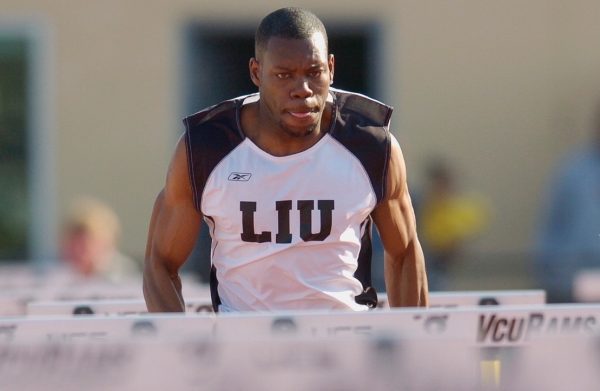
Things didn’t slow down there. In his freshman year, Carter Sinclair broke LIU’s school record for triple jump.
In addition to pursuing his athletic dreams at LIU, Carter Sinclair was able to follow his ambitions in the classroom. His four years of studying as an undergraduate would earn him a bachelor’s degree in both psychology and English.
“I was always interested in how people think and how people operate, so psychology was a good subject for me, he said. “And English is just a passion of mine.”
After graduating in 2005, Carter Sinclair wanted to stay involved with LIU. He started coaching track and field for the school, and also pursued a master’s degree in creative and professional writing.
“I was able to coach some of my friends and old teammates that season, which was great,” he said. “Since then, I’ve been a coach almost every year of my career.”
At the same time, Carter Sinclair worked as a grant writer.
“The great thing about being a grant writer is that what you put into writing can create real changes and gains for people in their everyday lives,” he said. “One time I helped with a grant for Queensbridge, [New York]. They didn’t have a library, but we were able to build one and put in computers for the children there. … That was a beautiful thing.”
After about nine months of writing grants, Carter Sinclair transitioned his career into becoming a teacher through an “alternative certification” program in New York City.
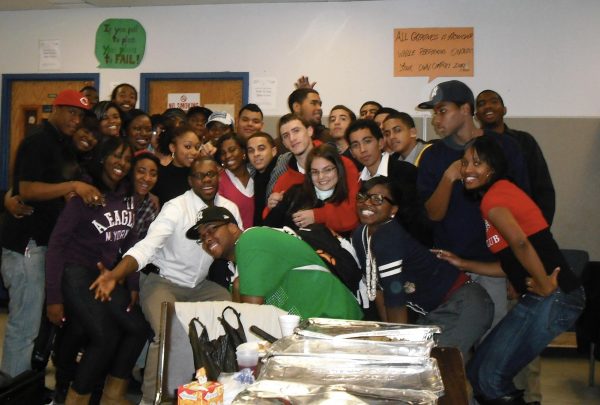
“The NYC teaching fellows program is a program that finds people who are working in certain fields who want to become teachers, and they make that happen,” he said.
As a fellow, Carter Sinclair began working at Brooklyn’s High School of Telecommunication Arts and Technology (which he shortened to “Telecommunications”). While there, he would separately earn another master’s degree in adolescent education. Later, in 2013, he would receive an additional one—this time in school building leadership.
“Those degrees gave me perspective and afforded me greater functions within being a teacher,” he said. “I had always been naturally good at supporting students, but after I got those degrees, I was able to approach how I was going to teach more methodically. They gave me a little more structure.”
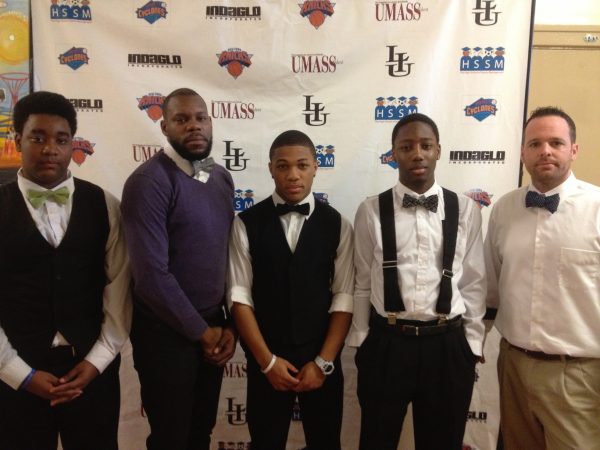
After Telecommunications, Carter Sinclair worked as a teacher and administrator at two other New York public schools — Midwood and John Dewey — before moving to Virginia last year for a “better opportunity to raise [his] two sons,” where he was assistant principal at the D.C. International School.
I mentioned that Carter Sinclair has sons (aged 2 and 10), and from my conversation with him, it was clear that they are a huge part of his life. He told me that his experience teaching has been very beneficial in becoming a better father.
“There’s no blueprint to being a parent, but there are certain universal goals; one is to create an environment that is safe and encouraging for my children to grow and make mistakes,” he said. “I think that’s the exact same thing I am doing here as a principal. It’s protecting a student’s environment and allowing [them] to grow without being too prescriptive.”
At ACHS, he says he is excited to begin his role as campus administrator.
“I really did my research into Alexandria City, its rich history and the community here that I’d like to be a part,” he said. “I came here with a plan to contribute to what is good about this school and to help bridge the gap for some of the areas where we can improve.
Part of Carter Sinclair’s plans emphasize the importance of self-sufficiency.
“I’m a big believer in teaching people how to fish,” he said. “I can offer fish all day, but if I’m no longer here one day, are you going to starve? If I teach you how to fish, I can leave and you’ll still have food to eat.”
I asked Carter Sinclair if he had any big plans for the school, but he told me he doesn’t want to make any premature decisions.
“I don’t believe that anybody should come into a place to be the genie in the bottle — to offer answers before spending the appropriate amount of time taking inventory of what is going on, gathering context, and developing relationships,” he said. “I was born with two ears and one mouth, so I try to do twice as much listening as I do speaking.”
It’s this awareness that really stuck out to me. Carter Sinclair seems to be a considerate, competent pick; one that will listen and hopefully, as he puts it, “shepherd” the King Street campus to serving students at its greatest extent.


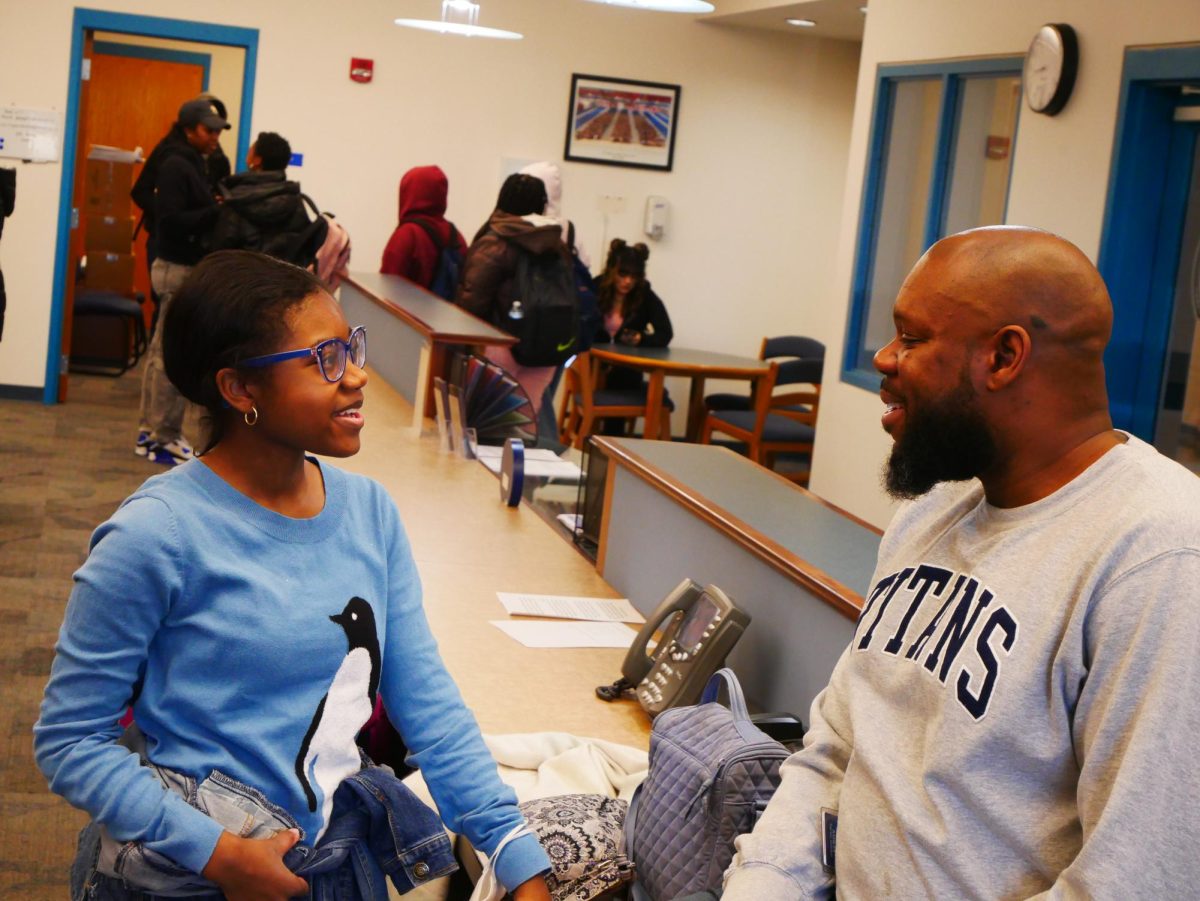

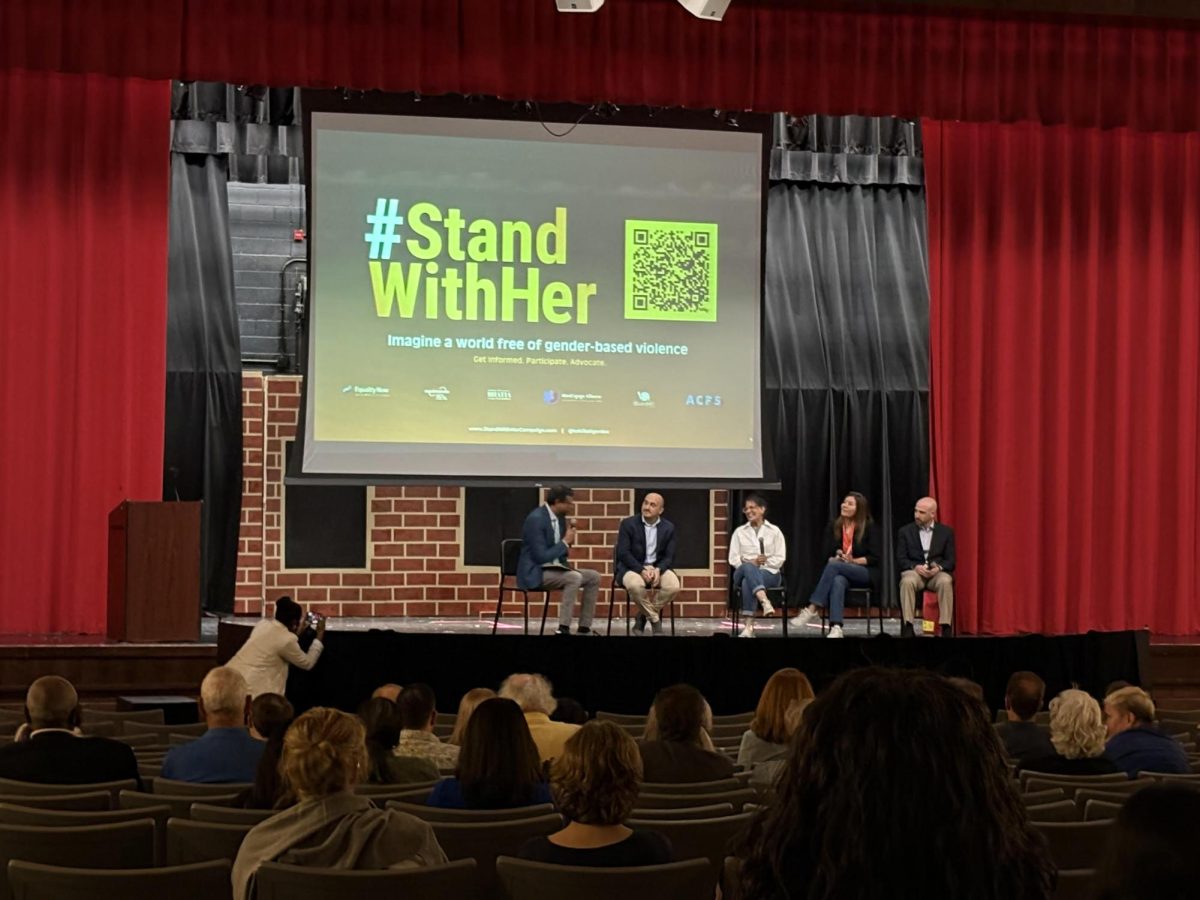
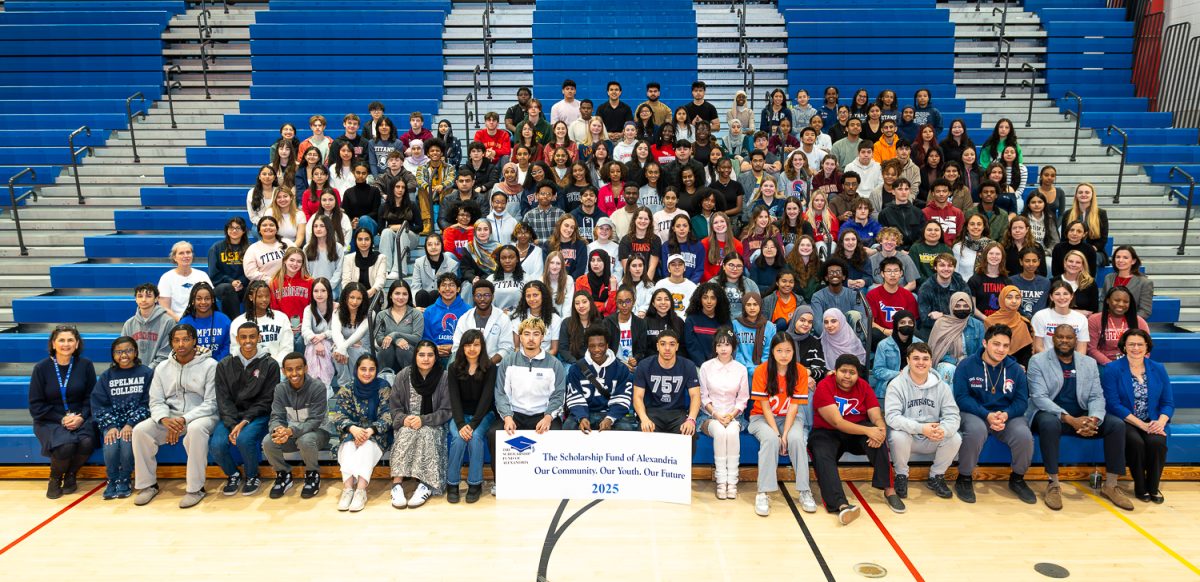



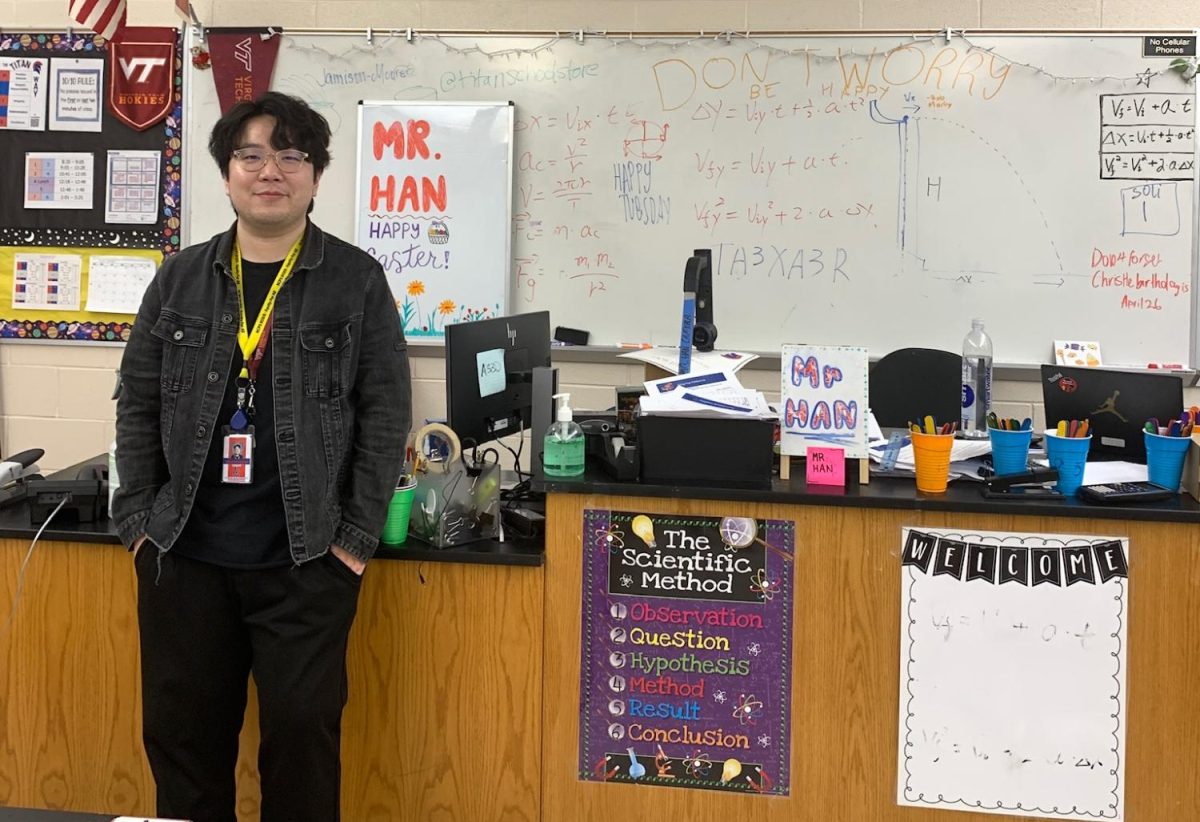
Irving Williams Jr • Nov 14, 2023 at 3:42 pm
This a great story of a young man who came from England to America and made it happen.